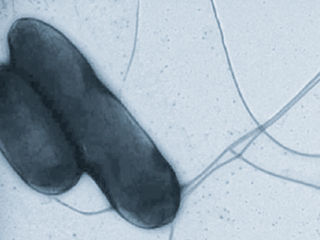UCI team discovers how protein in teardrops annihilates harmful bacteria
Finding that lysozymes have jaws could aid in early diagnosis of cancer
Advertisement
A disease-fighting protein in our teardrops has been tethered to a tiny transistor, enabling UC Irvine scientists to discover exactly how it destroys dangerous bacteria. The research could prove critical to long-term work aimed at diagnosing cancers and other illnesses in their very early stages.
Ever since Nobel laureate Alexander Fleming found that human tears contain antiseptic proteins called lysozymes about a century ago, scientists have tried to solve the mystery of how they could relentlessly wipe out far larger bacteria. It turns out that lysozymes have jaws that latch on and chomp through rows of cell walls like someone hungrily devouring an ear of corn, according to findings that will be published Jan. 20 in the journal Science.
"Those jaws chew apart the walls of the bacteria that are trying to get into your eyes and infect them," said molecular biologist and chemistry professor Gregory Weiss, who co-led the project with associate professor of physics & astronomy Philip Collins.
The researchers decoded the protein's behavior by building one of the world's smallest transistors – 25 times smaller than similar circuitry in laptop computers or smartphones. Individual lysozymes were glued to the live wire, and its eating activities were monitored.
"Our circuits are molecule-sized microphones," Collins said. "It's just like a stethoscope listening to your heart, except we're listening to a single molecule of protein."
It took years for the UCI scientists to assemble the transistor and attach single-molecule teardrop proteins. The scientists hope the same novel technology can be used to detect cancerous molecules. It could take a decade to figure out, but would be well worth it, said Weiss, who lost his father to lung cancer.
"If we can detect single molecules associated with cancer, then that means we'd be able to detect it very, very early," Weiss said. "That would be very exciting, because we know that if we treat cancer early, it will be much more successful, patients will be cured much faster, and costs will be much less."




















































